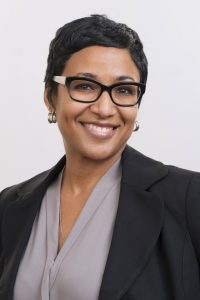 People of color experience discriminatory microagressions on a daily basis. They may have more difficulty hailing a cab than their white counterparts. They may be followed around a store by a clerk, or experience poor service at a restaurant.
People of color experience discriminatory microagressions on a daily basis. They may have more difficulty hailing a cab than their white counterparts. They may be followed around a store by a clerk, or experience poor service at a restaurant.
Social epidemiologist Amani Allen studies how these experiences, which she calls “social stressors,” affect the health of members of marginalized communities. She has heard about these experiences time and time again during interviews and focus groups with African American women in the San Francisco Bay Area.
“These are subtle experiences, but they are very persistent,” Allen said. “It is a kind of a day-in, day-out subtle form of mistreatment that has to do with one’s social identity. What is particularly insidious, is its chronic nature.”
At 10:45 a.m. today, July 16, in the Amphitheater, Allen will explain how social stressors can affect the health of the people who experience them.
“For a long time, there’s been evidence demonstrating the fact that stress impacts health,” she said. “This is one particular form of stress that is particularly salient and is a unique stressor among minority groups.”
Allen is a professor of community health sciences and epidemiology at the University of California, Berkeley, School of Public Health. She is also the principal investigator of the African American Women’s Heart and Health Study.
In the context of this week’s theme, “The New Map of Life: How Longer Lives are Changing the World — In Collaboration with Stanford Center on Longevity” Allen will discuss the inequities of the length and quality of life people experience depending on their social identity, as life expectancies of every group have increased over the past century or so.
“When we think about health and longevity, my primary question is who gets to live longer?” Allen said. “All groups don’t get to live long. I’m going to be talking a lot about premature aging and accelerated health decline and how certain groups experience premature aging that limits their ability to live into older age, and live into older age healthily.”
While Allen’s research focuses mostly on racial discrimination as a determinant of health, she also considers factors such as gender and socioeconomic status.
“People don’t experience their race apart from other aspects of their social identity,” she said. “It’s looking at how the intersection of all of those things impact health.”
Before becoming a professor at the University of California, Berkeley, Allen worked in the Department of Health in Washington, D.C., as well as at the Ministry of Health in Jerusalem.




